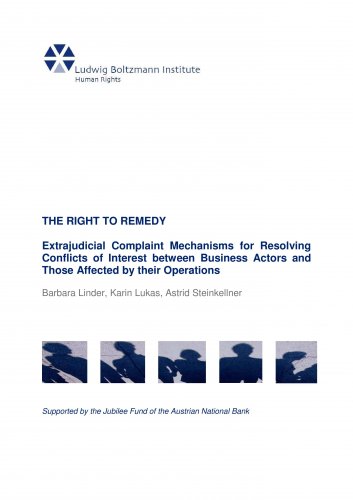Extrajudicial complaint mechanisms: conflict resolution between business and human rights
About the Project
In recent years, companies have faced increasing scrutiny for their human rights conduct. Current international human rights law has been traditionally state-based and provides only dissatisfying ways for potential victims of corporate human rights violations to hold companies accountable. Moreover, judicial proceedings may not be the primary option for both parties involved due to their costs and length as well as the often associated negative public attention. The aim of this study is to address the current gap in international human rights law and to explore alternative ways of conflict resolution that may provide for more immediate and equitable solutions on an extrajudicial basis.
For this purpose, a total of five complaint mechanisms, both international and corporate initiatives, have been examined in order to assess their capacity to strike a fair balance between human rights and business interests. The analysis reveals decisive factors and major challenges for establishing and implementing a human rights compatible extrajudicial grievance mechanism. It has distilled a set of model features that allow for assessing the quality of the mechanism and complement the effectiveness criteria of the UN Guiding Principles.
Project Data
Country: International
Persons involved: Karin Lukas, Astrid Steinkellner, Barbara Linder
Contact persons: Astrid Steinkellner
Lead Organisation: Ludwig Boltzmann Institute of Fundamental an Human Rights (LBI-GMR)
Project start: 02/2011
Project end: 10/2012
Project completed: Yes
Funded by: Jubiläumsfonds der Österreichischen Nationalbank (OeNB)
Programme Line LBI-GMR: Sustainability, Development, Business, Social

